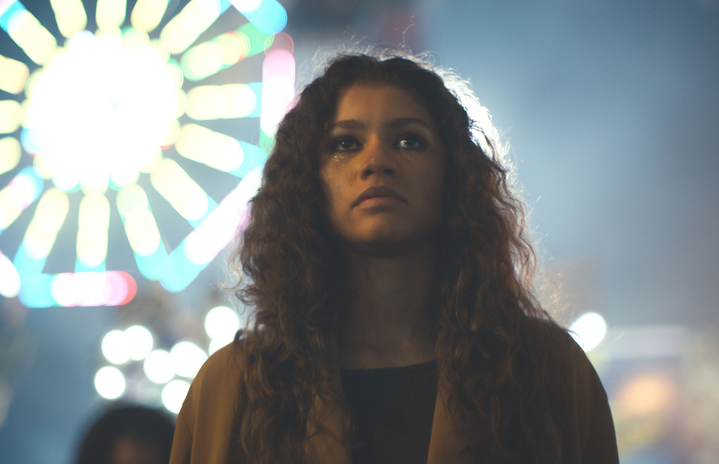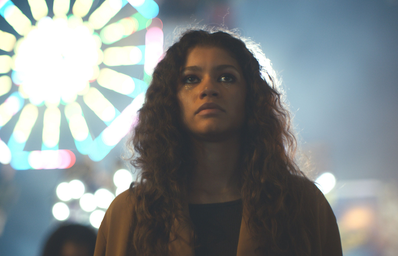Television shows, movies, and even social media content require media literacy- or the ability to decode messages in media and assess their intention and impact. As the digital media world has expanded and most of us take in multiple forms of media on the daily, our ability to watch something and apply critical thinking skills to it has waned. As a result, hard-hitting shows like Euphoria are demanding fans to exercise a muscle they don’t always use. Without the ability to contextualize television, understand the purpose of visuals, or read between the lines of dialogue, difficult topics discussed in Euphoria fall upon deaf ears.
One benefit of this web of mass media we’ve created is the discourse that enlightens viewers to different interpretations of Euphoria. In the weeks leading up to next week’s episode, you can scroll through a recap on Tiktok and find every last hot take or easter egg from last week’s episode. Tiktok creators are having a field day making sense of this season’s tumultuous storylines and the not-so-savory development of characters that were once easy to empathize with. What we are learning from this valuable discourse, however, is that many people lack the media literacy necessary to take in all that Euphoria gives.
Prime examples of this include viewers essentially canceling Cassie or going to war over the perceived goodness of Jule’s character. Sometimes it feels as if creators on Tiktok are failing to draw the line between fictional characters and reality, forgetting that the characters’ moral dilemmas and complexities drive the narrative. Placing characters into boxes of moral good and bad defeats the purpose of a coming-of-age show, especially one made with so much grit and interwoven trauma. A lack of media literacy also leads many to believe that the show is glorifying drug use, domestic abuse, or any of the other hosts of afflictions that the characters face. When in fact, showing characters facing these issues is not inherently glamorizing them. If we read between the lines and assess the likely trajectory of the characters as well as their backstories, it becomes apparent that the glitz and glam of Euphoria’s wardrobe, cinematography, and soundtrack do not exist to romanticize these issues.
This issue goes deeper than Euphoria and speaks to a general theme in modern media culture. While social media can feel like a fun little book club, our interpretations can carry a lot of weight. Discrediting a character because their actions were not morally good distracts from the point of the character. Without the ability to use critical thinking, we miss the underlying message- one that can change our interpretation of the media from harmful to beneficial. Media literacy is something that should be taught to us throughout our education so we can determine if what we are watching is credible to us as viewers. It extends to the news we watch and the headlines we read. As older viewers, it becomes our responsibility to teach ourselves how to consume media responsibly. It dictates what news we believe, what links we send, where we spend our money, and how we feel about our world.
Being conscious of what we are watching, especially if it’s meant for entertainment, can feel like it goes against the purpose of winding down with a show. But, some forms of media do glamorize pervasive and damaging social issues, which can be triggering or misleading for young audiences. It’s up to us as consumers of Euphoria to filter through the noise of the internet and interpret the show in a way that is candid and important to us.


